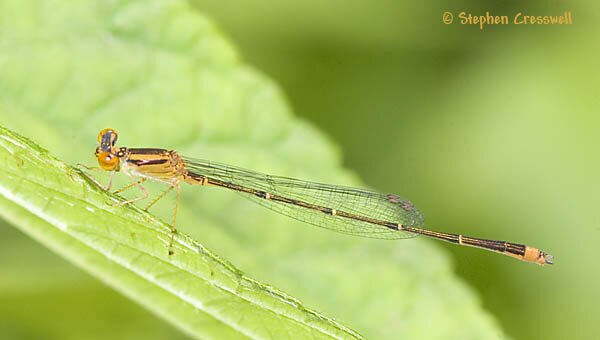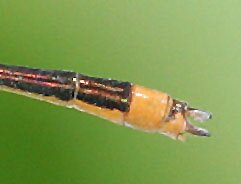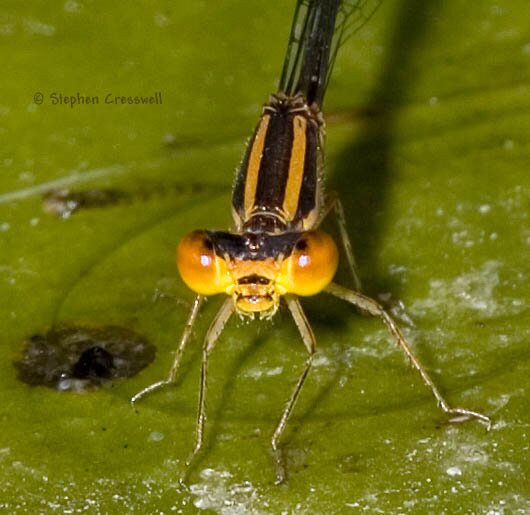
Family: Coenagrionidae
Length: 29-37 mm
The bluets group of damselflies is named for their predominantly blue coloration. Some species within the bluets, though, fly to the beat of a different drummer. The Orange Bluet is one of a handful of bluet species that has no blue as a mature adult. Instead, the males eyes and face and tip of the tail are orange, as are the stripes on the thorax.
The female has a color other than orange on the thoraxthis color may be bright yellow, or yellowish-green, or greenish blue.
Male Orange Bluets are sometimes confused with some of the female forktails, but forktails are smaller. Another difference is that the Orange Bluet male has segment nine of its abdomen (the penultimate segment) completely orange.
Like their close relative the Vesper Bluets, Orange Bluets are numerous in the late afternoonthough you will see some Orange Bluets earlier in the day as well. Look for Orange Bluets at ponds, lakes, bogs, and along slow-moving steams.

|
| Unlike certain female forktails, the Orange Bluet male has segment nine completely orange. |
 |
|
|
|
|
| Male and female Orange Bluets in tandem. These have already mated and are preparing for ovipositing. |


